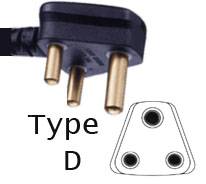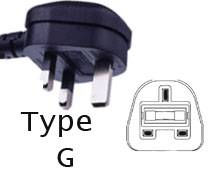Botswana, located in Southern Africa, is a land of stunning contrasts, from the lush wetlands of the Okavango Delta to the arid plains of the Kalahari Desert. Renowned for its abundant wildlife and pristine natural beauty, Botswana offers unforgettable safari experiences and cultural encounters with its diverse communities.
Ultimate Botswana Travel Guide
Destinations
Best time to go
The best time to visit Botswana is during the dry season from May to October when wildlife congregates around water sources, offering prime game viewing opportunities.
Average Temperature By Month
January: 25°C (77°F)
February: 25°C (77°F)
March: 24°C (75°F)
April: 22°C (72°F)
May: 19°C (66°F)
June: 16°C (61°F)
July: 16°C (61°F)
August: 18°C (64°F)
September: 22°C (72°F)
October: 24°C (75°F)
November: 25°C (77°F)
December: 25°C (77°F)
What To Expect
Time Zone:
Botswana operates on Central Africa Time (CAT), which is UTC+2.
Currency:
The currency of Botswana is the Botswana Pula (BWP), and credit cards are widely accepted in urban areas.
Language:
English is the official language, facilitating communication for travelers, while Setswana is widely spoken among locals.
Airport:
Sir Seretse Khama International Airport (GBE) in Gaborone is the main international airport, serving as the gateway to Botswana.
How To Get Around
Train:
Botswana’s train network connects major cities like Gaborone and Francistown, offering scenic journeys through the country’s landscapes.
Taxis:
Taxis are available in urban areas, and fares should be negotiated before the journey.
Bus:
Buses are the primary mode of public transportation, providing affordable and convenient options for traveling between towns and cities.
Car Service:
Renting a car is a popular choice for exploring Botswana, with well-maintained roads and the flexibility to venture off the beaten path.
Average Temperature By Month:
January: 25°C (77°F)
February: 25°C (77°F)
March: 24°C (75°F)
April: 22°C (72°F)
May: 19°C (66°F)
June: 16°C (61°F)
July: 16°C (61°F)
August: 18°C (64°F)
September: 22°C (72°F)
October: 24°C (75°F)
November: 25°C (77°F)
December: 25°C (77°F)
Plugs:
Botswana uses Type M electrical plugs, featuring three round pins in a triangular configuration.
VPN:
Using a VPN is recommended for secure internet browsing, especially when accessing public Wi-Fi networks.
Safety:
Botswana is relatively safe for travelers, but it's essential to take standard precautions, such as safeguarding belongings and staying informed about local conditions.
Credit Cards and Banks
Credit Cards:
Credit cards are widely accepted in major cities and tourist areas in Botswana, but it’s always a good idea to carry some cash, especially when traveling to more remote areas or smaller towns. Visa and MasterCard are the most commonly accepted cards, followed by American Express and Diners Club, though their acceptance may be limited.
ATMs:
ATMs are readily available in cities like Gaborone, Maun, and Francistown, allowing you to withdraw Botswana Pula (BWP). However, in rural areas and smaller towns, ATMs may be scarce, so it’s wise to withdraw enough cash when you have the opportunity.
Currency Exchange:
Botswana’s currency is the Botswana Pula (BWP), which is divided into 100 thebe. You can exchange major foreign currencies at banks, bureau de change, and some hotels. US dollars, British pounds, and euros are the most commonly accepted foreign currencies for exchange.
Banks:
Major banks in Botswana include:
- Bank of Botswana: The central bank of Botswana, it regulates the country’s financial institutions and issues the national currency.
- First National Bank Botswana (FNBB): One of the largest commercial banks in Botswana, FNBB provides a range of banking services including savings accounts, loans, and foreign exchange.
- Standard Chartered Bank Botswana: This international bank operates branches throughout Botswana, offering various banking products and services for both individuals and businesses.
- Barclays Bank Botswana: With a long history in the country, Barclays Bank Botswana provides retail and corporate banking services.
Traveler’s Checks:
While traveler’s checks are not as commonly used as they once were, some banks in Botswana may still accept them. However, their usage is limited compared to credit and debit cards.
Tips for Banking in Botswana:
- Notify your bank before traveling to Botswana to avoid any issues with card usage abroad.
- Keep your PIN and card information secure and be cautious when using ATMs, especially in secluded areas.
- Carry a mix of cash and cards, as some establishments may not accept cards or may have minimum purchase requirements.
By familiarizing yourself with the banking system in Botswana, you can ensure a smooth and hassle-free financial experience during your travels.
Locations
Botswana
TRAVEL FACTS
US State Dept Travel Advisory
The US Department of State currently recommends US citizens exercise increased caution in Botswana due to crime.
https://travel.state.gov/content/travel/en/traveladvisories/traveladvisories.html
Passport/Visa Requirements
For the latest passport and visa requirements for this country, please consult the U.S. State Department’s “Learn About Your Destination” search tool, available through the link below.
US Embassy/Consulate
[267] 395-3982; US Embassy Gaborone, Embassy Drive, Government Enclave, (off Khama Crescent), Gaborone, Botswana; https://bw.usembassy.gov/; ConsularGabarone@state.gov
LGBTQIA+ Travelers
Lesbian, gay, bisexual, transgender, queer, intersex, and asexual (LGBTQIA+) travelers can face unique challenges when traveling abroad. Laws and attitudes in some countries may affect safety and ease of travel. Legal protections vary from country to country. Many countries do not legally recognize same-sex marriage. Approximately seventy countries consider consensual same-sex sexual relations a crime, sometimes carrying severe punishment.
Telephone Code
267
Local Emergency Phone
Ambulance 997; Police 999; Medical Rescue 911
Vaccinations
The CDC and WHO recommend the following vaccinations for Botswana: hepatitis A, hepatitis B, typhoid, yellow fever, rabies, meningitis, polio, measles, mumps and rubella (MMR), Tdap (tetanus, diphtheria and pertussis), chickenpox, shingles, pneumonia, influenza, and COVID-19.
Climate
Semiarid; warm winters and hot summers
Currency (Code)
Botswana pulas (BWP)
Electricity/Voltage/Plug Type(s)
230 V / 50 Hz / plug types(s): D, G


Major Languages
Setswana, Sekalanga, Shekgalagadi, English, Zezuru/Shona, Sesarwa, Sembukushu, Ndebele
Major Religions
Christian, Badimo, other, none, unspecified
Time Difference
UTC+2 (7 hours ahead of Washington, DC, during Standard Time)
Potable Water
Opt for bottled water
International Driving Permit
Suggested
Road Driving Side
Left
Tourist Destinations
Chobe National Park; Okavango Delta; Tsodilo Hills; Nxai Pan National Park; Tuli Block; Kgalagadi Transfrontier Park; Mokolodi Nature Reserve
Major Sports
Soccer, boxing, softball, cricket, rugby
Cultural Practices
Handshakes, in Botswana, are more intricate than in western countries and involve the left hand placed under the right elbow.
Tipping Guidelines
Tip $1-2 (USD) per bag for porters to bring luggage to your room. A $1-2 (USD) tip for hotel staff is also common. A $10 (USD) per day tip is average for guides.
Souvenirs
Woven baskets, native dolls, leather and textile items, wood carvings, jewelry and ostrich shell items
Traditional Cuisine
Seswaa (or loswao) — beef or goat meat boiled with salt until tender and sometimes pounded; often served with maize meal, ground corn, or sorghum
Please visit the following links to find further information about your desired destination.
World Health Organization (WHO) – To learn what vaccines and health precautions to take while visiting your destination.
US State Dept Travel Information – Overall information about foreign travel for US citizens.
To obtain an international driving permit (IDP). Only two organizations in the US issue IDPs:
American Automobile Association (AAA) and American Automobile Touring Alliance (AATA)
How to get help in an emergency?
Contact the nearest US embassy or consulate, or call one of these numbers:
from the US or Canada – 1-888-407-4747 or from Overseas – +1 202-501-4444
Central Intelligence Agency.
The World Factbook.
/the-world-factbook
(May 8, 2024)



